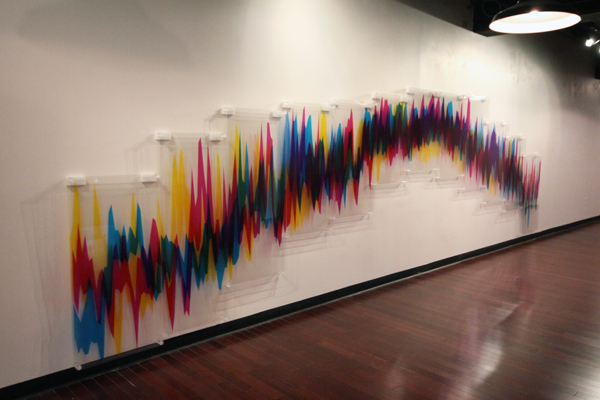There is a passage in a
recent short story by Lorrie Moore, called “Referential,” that goes like this:
There was a storm looming, and lightning did its quick, purposeful zigzag among the clouds. She did not need such stark illustration that horizons could be shattered, filled with messages and broken codes, yet there it was. A spring snow began to fall with the lightning still cracking .... She knew that the world had not been created to speak just to her, and yet, as for her son, sometimes things did.
This is, I think, a
particularly lovely example of something I see again and again, in works of
fiction, poetry, even news reports: a moment, a pause, as a person takes in the
weather and wonders if it might be meaningful. (Maybe this, even more than if
it will rain or snow, is the real “whether” of the weather.) Here, the
protagonist is driving home after visiting her mentally ill son at the
institution where he lives, and for a moment, like him, she sees “messages” in
“things.” (I love that weather, here, is a “thing”—because it is.) The message
in the lightning, its “broken code,” tells her that her “horizons” can be
“shattered”—and really, is there any clearer illustration of chance, of
uncertainty, than the weather? All the same, the message is “broken”: weather
is at once clear and inscrutable.
In this moment, the
moment of this writing, I’m sitting at my desk, in south St. Louis city,
listening to the low rumble of distant thunder, as the first rain we’ve had in
weeks falls gently outside my window. It’s been terrible here, weather-wise—sublime,
really, which is just another way to say it’s been godawful. We’ve had
temperatures above 100 almost every day in July. It hasn’t rained. There haven’t
even been clouds, for the most part, until this past week, when they
materialized and loomed spectacularly over the city, and brought no rain.
Stepping outside in this weather is like walking into a wall. It is hard,
a fact. As such, it’s hard to know what to say about it, but we talk
about it anyway.
And of course, we talk
about global warming. Again, no one is saying this is global warming,
but a lot of people, including climate scientists, have allowed that it is a
kind of “preview” of global warming. It’s a hell of a preview. I honestly don’t
know how we’d manage a string of summers like this one, not to mention a string
of winters like the last one, when it snowed, lightly, only two or three times
and temperatures rarely fell below freezing.
Wondering if weather is
meaningful is not so different from wondering if weather is global warming.
I’m a midwesterner, and I feel a kind of panic when I
imagine midwestern winters without snow. I’m not sure what, exactly, would be
lost, but it’s something like meaning. There is talk now among those of us who
think critically about ecology that despair may be a real and even
useful (and perhaps our only) option.
For the moment, I’ll
defer to Scott Fitzgerald. I came across this lovely passage in my most recent
reading of The Great Gatsby:
When we pulled out into the winter night and the real snow, our snow, began to stretch out beside us and twinkle against the windows, and the dim lights of small Wisconsin stations moved by, a sharp wild brace came suddenly into the air. We drew in deep breaths of it as we walked back from dinner through the cold vestibules, unutterably aware of our identity with this country for one strange hour before we melted indistinguishably into it again.

